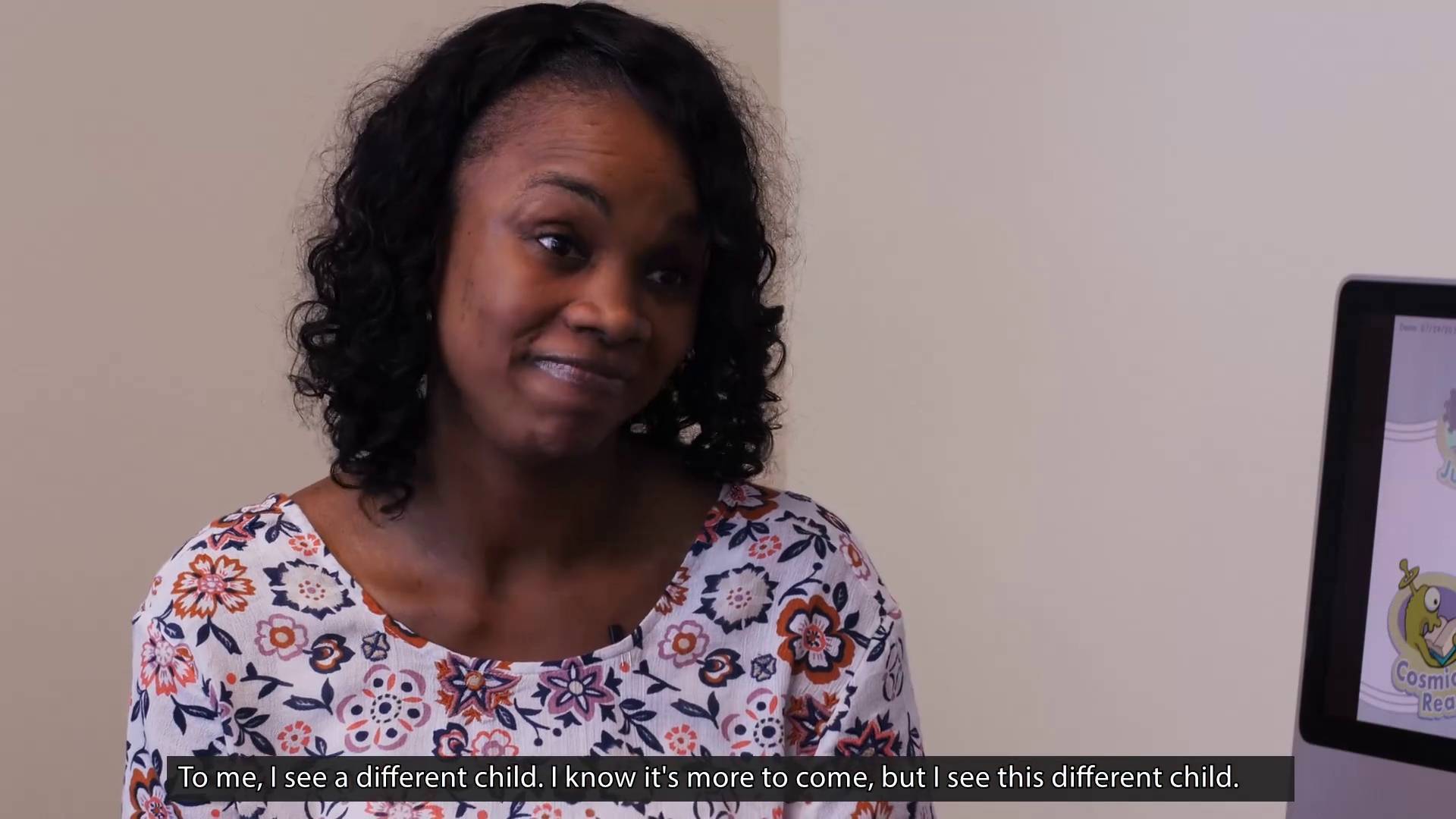
For Autism Awareness Month, Monicia has advice for other parents of children with autism. Read through to learn about the changes she's seeing in her son while he is using the Fast ForWord® program, and the words of inspiration she has to share.
Can you introduce yourself and tell us about your son?
Monicia: My name is Monicia. My son is nine years old. He's diagnosed with autism. He was diagnosed at three and a half years old.
What were you told about his future?
Monicia: They told me, "Be prepared that he may not ever speak or be able to function on his own." They said it was more of a severe diagnosis, but as time has gone on it seems more mild. I don’t see that it’s severe.
How did you feel when you found out about your son’s diagnosis?
Monicia: I was very scared and sad. I thought, "What am I going to do?" They told me, "He's not going to be able to function on his own. He's not going to be able to handle noises, handle sounds." So I started taking him out more and more. I took him everywhere. I wanted him to be able to function.
Have you seen any changes in him since he’s started Fast ForWord?
Monicia: Oh my goodness. He's focusing more. His attention span is very on. If you call his name, his response time is very quick. He's giving eye contact. He comes right up to you and says, "Hi". Or, if it's time to go, he says, "Bye." He's actually saying people’s names like "Miss Sarah" or whatever the [person’s] name is. He's actually vocalizing a lot more as well.
What kinds of difficulties did you notice before your son began the Fast ForWord program?
Monicia: Not focusing. Not paying attention. His response time. If you called him, you had to constantly keep calling his name. His attention span was not there.
Have you seen any changes in your son’s communication? Does he use a communication device?
Monicia: Yes, he still uses a communication device, but now he's using it less. He's now able to request things without the communication device. He was always requesting the bathroom with the communication device. Since he's been in this program, he's actually now able to tell me, "I want the bathroom," or "I need to go to bathroom." That was very shocking to me. Since he's been in the program, I've seen him respond and tell me what he wants.
You mentioned before the interview that your son participated in some assessments recently, before he started Fast ForWord. Have there been any changes in what he was able to do then versus now?
Monicia: He wasn't able to produce words six months ago. Now, he's able to produce more words. When you show him a picture of something, like a picture of a banana, he's able to pronounce it clearly and he is able to say the name of the picture. At first, he wasn't. Even though he may have known what the picture was, he didn’t say anything. Now he’s able to say what the picture is. I was very amazed by that.
Have you noticed any other changes in your son since he started the program?
Monicia: Yes. It's like to me, I see a different child. I know there's more to come, but I see this different child. I'd sit there thinking, "What is it?" You can see that he's different.
I see a lot of maturity in him and he’s very confident. He is trying to do a lot more on his own. Also, he was flapping [his hands] a lot. Since I’ve had him in the Fast ForWord program, the flapping has pretty much stopped.
What do you see your son doing instead of flapping his hands?
Monicia: He tries to control it. You can tell — that's what I said about maturity — if he's flapping his hands, he takes them and holds his hands together calmly. Or he folds his arms.
Before the interview you mentioned the occupational therapist commented on Jordan’s eye contact. What changes are other people seeing?
Monicia: Yes, the occupational therapist said to him, "Wow, Jordan. I'm loving your eye contact." We were talking about the session he had just had and Jordan was walking around. He was far from us, playing by some trees. I said, "Okay, Jordan. We're getting ready to leave." He walked all the way up to her, looked her dead in her eyes, and told her, "Bye."
And before?
Monicia: Before he would never do that. He's never done that. Never. To anyone. This was the first time ever. we used to have to tell him, “Look. Look at me. Say 'hello.' Say 'hi.’” Now, we don't have to tell him. He just does it on his own.
Have the differences you’ve seen had any influence on your outlook for your son?
Monicia: I have more hope than I had before.
What advice do you have for parents of children on the autism spectrum?
Monicia: Anything is possible. Don't ever let anyone tell you that your child can't do this or your child can't do that or he will not be able to speak. He will. I believe that in my heart. He will. All things are possible. I believe this is a blessing, just the beginning of a blessing. There's more to come.


We welcome your comments. Submitted comments will appear as soon as the moderator reviews and approves.